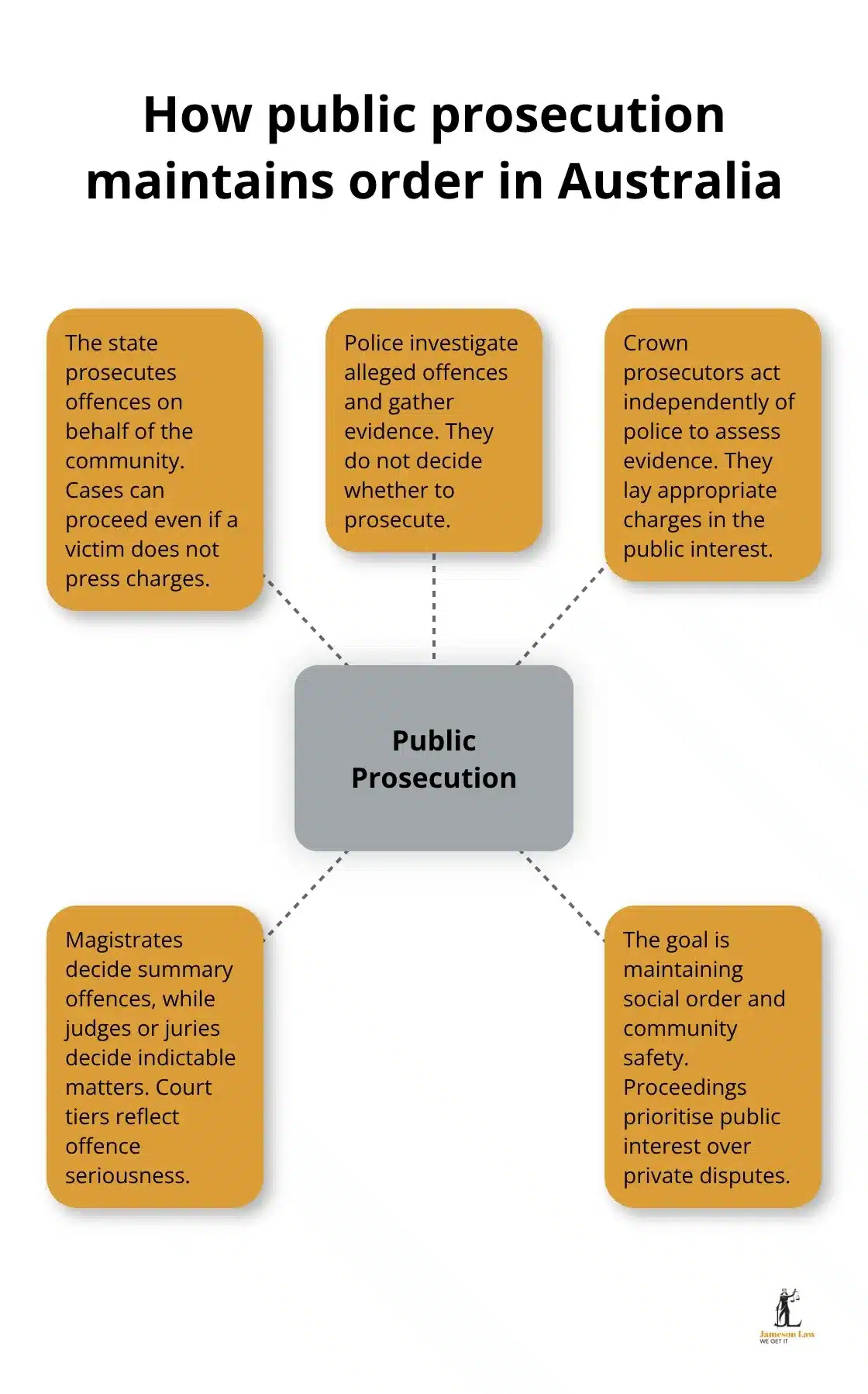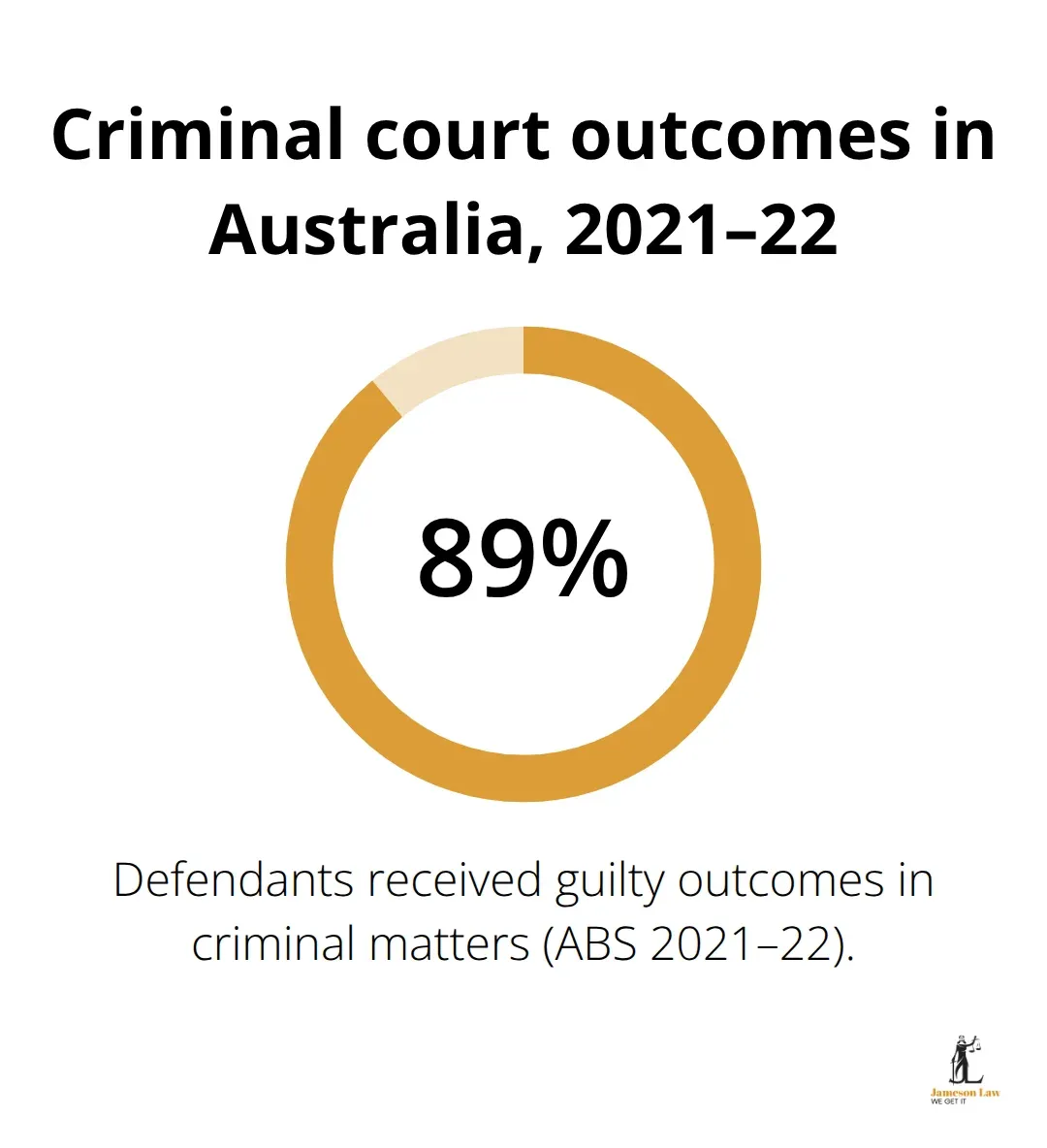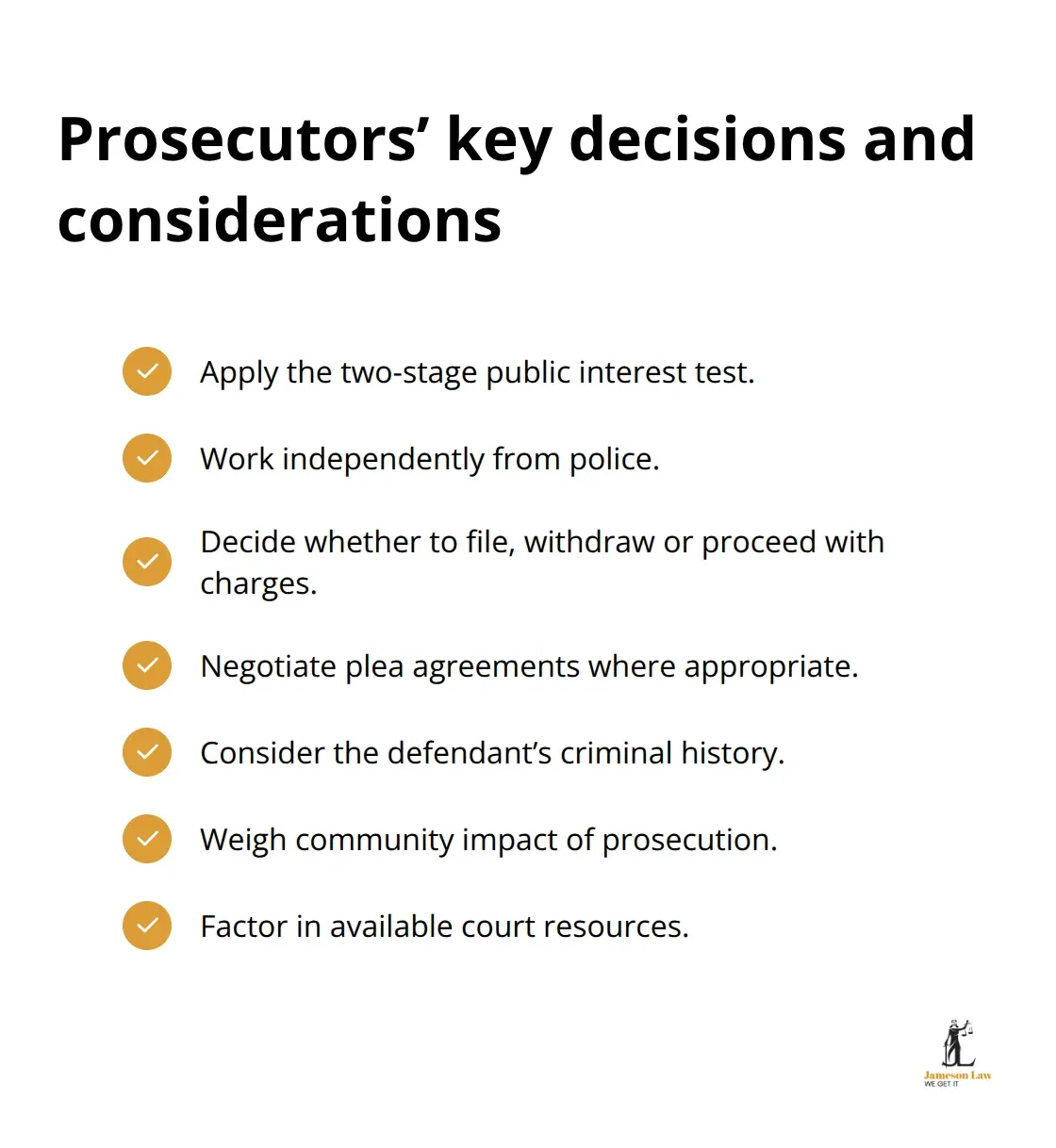Criminal law is a type of public law that governs how society addresses wrongdoing and maintains order. This legal framework places the government at the centre of prosecuting offences against the community. See our overview of criminal law in NSW.
We at Jameson Law see many clients who don’t fully grasp this distinction. Understanding where criminal law sits within Australia’s broader legal system helps you navigate potential charges and court proceedings more effectively. For a practical primer, read NSW criminal court procedures.
What Makes Public Law Different From Private Law
Public law governs the relationship between individuals and the state, with the government holding the power to prosecute and punish offenders on behalf of society. In Australia, the legal system comprises nine legal systems, including eight State or Territory systems and one federal system, which gives government agencies the authority to enforce criminal offences that threaten community safety. The state prosecutes crimes through specialised courts where Crown prosecutors represent public interests rather than individual victims. See the NSW ODPP role.
Government Authority in Legal Proceedings
Criminal law operates under public law because the government acts as the primary enforcer. Police and courts maintain social order through this framework. When someone commits assault or theft, the state prosecutes the case even if the victim does not wish to proceed. Compare with private law disputes, where individuals sue for contract breaches or property damage. Most first appearances are in the Local Court; learn more in our guide to the NSW criminal court list.

Evidence Standards and Legal Consequences
Public law requires prosecutors to prove guilt beyond reasonable doubt, a higher standard than the balance of probabilities used in civil cases. See the five basic principles of criminal law. Criminal convictions result in penalties such as imprisonment, fines or community-based orders, while civil matters usually end with compensation between parties.
State Power vs Individual Rights
The state holds significant power in criminal proceedings because it represents the community’s interests. Common law courts provide important protections for rights and the rule of law, except where legislation overrides them. If you are contacted by police, read our advice on what to do next.
How Criminal Law Operates as Public Law in Australia
Australia’s criminal justice system uses a structured hierarchy. The Commonwealth DPP handles federal crimes; state and territory DPPs manage local offences. The Australian Bureau of Statistics reports large volumes each year; see Criminal Courts, Australia. Crown prosecutors act in the public interest and are separate from police investigations, maintaining prosecutorial independence.

Government Prosecution Powers and Responsibilities
Police investigate and gather evidence, but prosecutors decide whether to proceed. See NSW ODPP Prosecution Guidelines. Decisions weigh evidence and the public interest. For defendants, early advice matters; start with our guide to court procedures and representation at trial.

Court Structure and Criminal Case Management
Magistrates’ courts hear most summary offences, while District and Supreme Courts handle indictable matters. About 95% of criminal cases are finalised in magistrates’ courts. There are specialist forums like the NSW Drug Court. For bail, see our bail applications page.
These structures and processes show how criminal law functions as public law, with the state controlling proceedings.
Key Characteristics of Criminal Law as Public Law
State Authority Over Individual Rights
The Crown prosecutes on behalf of the community, and cases can proceed even where victims are unwilling. If you are facing charges, read about criminal defences in NSW and the right to silence.
Evidence Requirements and Legal Standards
Prosecutors must prove guilt beyond reasonable doubt. Learn the core principles and how they differ from the balance of probabilities used in civil matters.
State-Imposed Penalties and Consequences
Sanctions include fines, community service and imprisonment, creating lasting records that affect employment and travel. For advocacy at sentence, see sentencing advocacy.
Final Thoughts
Criminal law is a public law domain where the state prosecutes offences and courts impose penalties according to strict standards of proof. If you are under investigation or charged, tailored legal advice is critical. Contact Sydney criminal lawyers at Jameson Law or contact us for a confidential consult, or call (02) 8806 0866.













